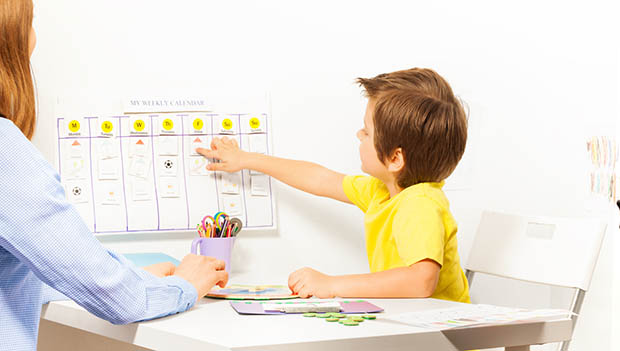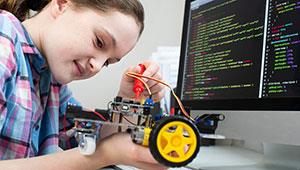
Middle school is an exciting time for kids. They get lockers, they switch classes and they get to learn about interesting new topics. It can also be a stressful time, with a heavier workload, multiple teachers and higher expectations. Add these worries to a new building and new classmates, and kids can find themselves struggling to settle in to a routine.
Setting up a system early to ensure classwork doesn't slip through the cracks and finding a way to stay organized can be a lifesaver for both new middle schoolers and their parents.
Here are several tips for keeping your middle schooler on track for success.
Create a Daily Routine
The saving grace of busy mornings, afternoons and evenings is having a daily routine. Every morning the kids have specific things to do, including basic grooming and eating breakfast. Every afternoon they have specific tasks as soon as they walk in the door, including unpacking backpacks, checking their planners, and after a snack, doing homework. Bedtime has its own set of items as well, and if the kids need a reminder, they just check the list. Having a daily routine chart can minimized both your time spent yelling and your kids' habit of wandering the house aimlessly wondering what they're supposed to be doing. They are more focused and halfway through the year, usually complete their responsibilities on autopilot, freeing up their brains for more lofty endeavors.Use a Calendar or a Planner
Planners and calendars are a must for middle schoolers. Not only does the exercise of writing things down helps students remember tasks and activities, but having all to-dos in one place is helpful for kids who aren't used to managing their own time as well.
Planners and calendars are only as good as the information on them though. The top piece of advice from an actual sixth grader is to write down homework assignments in the planner as soon as it's assigned. If that homework isn't due the very next day, write the assignment both on the assigned date and the due date. If by the end of class no homework is assigned, write "no homework." This gets kids in the habit of documenting all assignments and allows parents to know if they are getting a truthful answer to "do you have any homework?"
In addition to homework, all extra-curricular activities should be on the planner or calendar too. That way kids can see at a glance that they should finish Friday's paper on Wednesday because Thursday night they have an away game.
Time Management
Middle school is often a time when tests require more studying and papers demand outlines, rough drafts and properly cited sources than they used to. It may take weeks to churn out a polished paper, and many kids have a hard time planning for or implementing this process. Even a lot of adults are far too familiar with looming deadlines. Chipping away at large assignments and studying in advance for upcoming tests is a habit that will benefit kids forever and will minimize the late-night cram sessions.A Place for Everything
Kids need to have access to a quiet place to study and to any materials they may need. Their backpack should be large enough to transport necessary books and binders home, as well as anything else that needs to go back and forth to school.
Lockers need an organizational system, too. Locker organizers can be found at local office supply stores or online and allow kids to separate belongings by day, subject or whatever works best for them.
The homework that was so diligently documented on the planner needs to make it home to be completed. And after it's done, it needs to find its way back to school and into the teacher's hands. Some kids use a large, multi-subject binder for keeping all important documents together. Other kids have one folder specifically for homework, and that folder goes everywhere with them. Many schools use online tools for completing and submitting homework.
Offer Support
By middle school, most kids should be able to speak to their teachers about most issues that arise, and many schools give the kids email addresses. Kids should be encouraged to email their teachers if necessary and to advocate for themselves. Parents should only step in if the situation isn't being resolved or if the issue is too serious for a child to handle.
Parents may be called upon to help with a child's actual homework on occasion, but the real responsibility is to ensure kids have the systems in place and the necessary tools to succeed.
Remember, kids want to succeed. Often what can be seen a laziness or a lack of effort is really a lack of organization or a kid who is simply overwhelmed. Patience and support can go a long way while kids are figuring out the best systems and strategies to manage middle school for themselves.
READ THIS NEXT: 7 Hacks to Relieve After-School Chaos









Discuss This Article